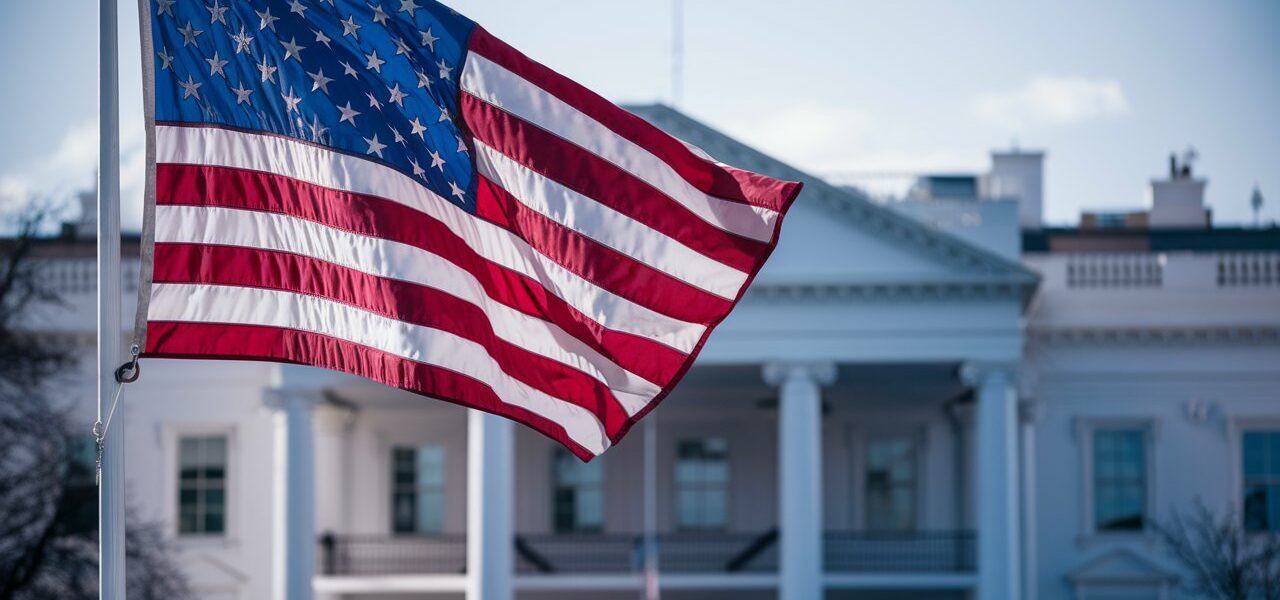Key Takeaways from CNN’s Interview with Kamala Harris and Tim Walz: A Deep Dive into Their Vision for America
Kamala Harris Reflects on the Significance of Representation
In a candid and emotional segment of the interview, Vice President Kamala Harris shared a personal moment that resonated with her deeply. A photograph of her young grandniece, captured while watching Harris deliver a speech at the Democratic National Convention in Chicago, struck a chord with her. The image, featuring the child with her hair in pigtails, symbolized the potential for Harris’ candidacy to inspire and empower future generations. Harris expressed how profoundly moving it was to see a young girl, especially one from her own family, witnessing her speak on such a prominent stage.
While Harris has repeatedly emphasized that her presidential campaign is for “all Americans,” this moment underscored the historic nature of her candidacy as the first woman of color to be on a major party’s presidential ticket. “It’s very humbling. Very humbling in many ways,” she told CNN’s Dana Bash. The photo, she suggested, is more than just a family keepsake; it’s a powerful reminder of the barriers her candidacy could break, offering a vivid representation of the progress that could be achieved. This personal anecdote exemplifies the broader significance of her run for office, which extends beyond policy into the realm of cultural and generational impact.
Evolving Positions on Key Issues: Fracking and Border Security
One of the most noteworthy aspects of the interview was Harris’ discussion of how her positions on critical issues like fracking and border security have evolved over time. These shifts reflect the complex and dynamic nature of governance and the need to adapt to changing circumstances while staying true to one’s core principles.
As a presidential candidate in 2019, Harris was an outspoken critic of fracking, aligning herself with environmental progressives who view the practice as harmful to the climate. However, in the interview, Harris made it clear that her stance has since moderated, particularly in light of her role as Vice President and the broader energy policy of the Biden administration. “As vice president, I did not ban fracking. As president, I will not ban fracking,” Harris stated firmly. She explained that while she remains deeply committed to addressing the climate crisis, she believes it is possible to pursue a clean energy future without completely banning fracking.
The Inflation Reduction Act, a landmark $750 billion bill that Harris played a crucial role in passing, reflects this nuanced approach. The legislation has simultaneously expanded fracking and accelerated clean energy initiatives, illustrating Harris’ belief that economic growth and environmental responsibility can coexist. “My values have not changed,” she reiterated. “I believe it is very important that we take seriously what we must do to guard against what is a clear crisis in terms of the climate.” Harris’ explanation underscores her commitment to a pragmatic approach that balances environmental concerns with economic realities, especially in key battleground states like Pennsylvania, where fracking is a significant industry.
On the issue of border security, Harris also highlighted an evolution in her stance since her 2019 presidential bid. During the interview, she pointed out that while she once supported the decriminalization of illegal border crossings, she now advocates for stricter enforcement of existing laws. Harris attributed much of the current border security issues to decisions made by Donald Trump during his presidency, particularly his rejection of a bipartisan border security bill. “Because he believed that it would not have helped him politically, he told his folks in Congress, don’t put it forward. He killed the bill — a border security bill that would have put 1,500 more agents on the border,” Harris remarked. She criticized Trump for prioritizing political gain over national security and promised to revisit and push forward a similar bill if elected president.
A New Kind of Cabinet: Harris Open to Appointing Republicans
In a striking departure from the hyper-partisan nature of recent administrations, Harris expressed a willingness to consider appointing Republicans to her Cabinet if she wins the presidency. This bipartisan approach, she believes, is essential for healing the deep divisions that have plagued American politics in recent years. “Yes, I would,” Harris said when asked if she would include Republicans in her Cabinet. However, she was careful not to name any specific individuals, noting that with 68 days left in the election, it would be premature to make such decisions.
Harris emphasized the importance of having diverse opinions and experiences represented at the decision-making table, a sentiment that harks back to the days of former President Barack Obama, who famously appointed Republicans to key Cabinet positions, including former Illinois Rep. Ray LaHood as transportation secretary and former Nebraska Sen. Chuck Hagel as defense secretary. Harris suggested that the pool of Republicans who have publicly opposed Trump could be potential candidates for such roles. “I have spent my career inviting diversity of opinion,” Harris said. “I think it’s important to have people at the table when some of the most important decisions are being made that have different views, different experiences. And I think it would be to the benefit of the American public to have a member of my Cabinet who was a Republican.”
This statement reflects Harris’ broader strategy of governance — one that values collaboration and seeks to bridge the partisan divide that has become a defining feature of American politics. Her openness to working with Republicans could appeal to moderate voters who are tired of the gridlock in Washington and are looking for leaders who prioritize results over party loyalty.
Refusing to Engage in Trump’s Identity Politics
Harris’ decision to sidestep Donald Trump’s attempts to attack her on the basis of her racial and gender identity was another significant moment in the interview. Last month, Trump made controversial remarks at the National Association of Black Journalists conference in Chicago, questioning Harris’ racial identity and suggesting that she had only recently started identifying as Black for political reasons. Rather than taking the bait, Harris dismissed Trump’s comments as part of his “same old tired playbook” and declined to engage further. “Next question, please,” she said with a smile when Bash asked for her response.
This measured reaction is consistent with Harris’ overall campaign strategy, which seeks to avoid getting entangled in identity politics — a tactic that Trump has often used to rally his base. By refusing to engage with Trump on this front, Harris is signaling that her campaign will focus on substantive issues rather than personal attacks. This approach could resonate with voters who are weary of the divisive rhetoric that has characterized much of Trump’s political career.
The Phone Call That Changed the 2024 Race
Perhaps one of the most dramatic moments of the interview was when Harris recounted the day she received the call from President Joe Biden, informing her that he had decided to step down from the 2024 race and endorse her as his successor. Harris described the moment as surreal, noting that she was in the midst of a family gathering, making breakfast and doing a puzzle with her nieces, when Biden called. “It was Joe Biden, and he told me what he had decided to do,” Harris recalled.
The phone call marked a significant turning point in the 2024 presidential campaign, fundamentally altering Harris’ trajectory and setting the stage for her historic candidacy. Harris expressed deep respect and admiration for Biden, describing him as a selfless leader who always puts the American people first. “I asked him, ‘Are you sure?’ and he said ‘Yes,’” she recounted, reflecting on the gravity of the decision. Harris praised Biden’s presidency as “transformative” and argued that his decision to withdraw from the race was a reflection of his character and commitment to the country.
Harris also took the opportunity to defend the Biden administration’s record, highlighting their achievements in infrastructure investment, efforts to lower drug costs, and initiatives to renew alliances abroad. “I am so proud to have served as Vice President to Joe Biden,” she said. “I am so proud to be running with Tim Walz for president of the United States and to bring … what I believe the American people deserve, which is a new way forward.”
Tim Walz Reflects on His Political Missteps
In the interview, Minnesota Governor Tim Walz was also candid about his past mistakes, acknowledging inaccuracies in statements he has made during his political career. For example, Walz admitted to misspeaking in a 2018 video where he referred to “weapons of war, that I carried in war,” despite never having served in a combat zone during his 24 years in the Army National Guard. He also clarified comments he made during his convention speech about using in vitro fertilization to conceive his children, acknowledging that the treatment was, in fact, a different kind of fertility assistance.
Walz’s willingness to own up to these mistakes reflects a broader theme of accountability that he emphasized throughout the interview. “I certainly own my mistakes when I make them,” he said. “I won’t apologize for speaking passionately, whether it’s guns in schools or protection of reproductive rights.” Walz’s remarks suggest that he values transparency and integrity, qualities that he believes are essential for effective leadership. He contrasted his approach with that of his Republican rivals, particularly Ohio Senator JD Vance, who has taken a more combative stance in the campaign, going so far as to say Harris could “go to hell” in response to her handling of the Afghanistan withdrawal.
Looking Ahead: Harris Envisions a New Era in American Politics
In a final reflection, Harris framed the 2024 presidential race as a pivotal moment for the country, one that offers a chance to move beyond the divisive politics of the past decade. She suggested that the era of Donald Trump has been marked by a distorted view of leadership, where strength is measured by how many people one can “beat down” rather than how many people one can “lift up.” Harris argued that this election is about much more than individual policies or political rival





